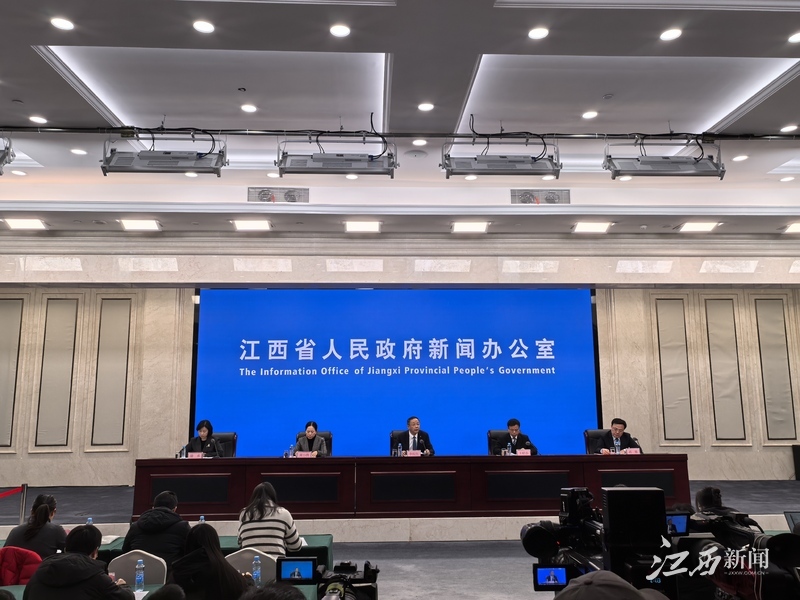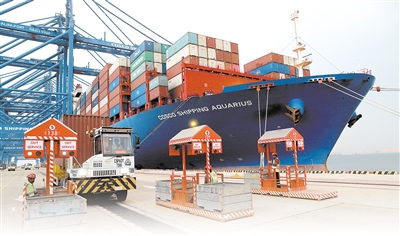Xinjiang: An Indispensable Strategic Location For National Development
Xinjiang: An Indispensable Strategic Location For National Development
Looking back from the historical dimension to the actual development considerations, Xinjiang's importance runs through many key areas such as politics, economy, culture, ecology, and security, and is a crucial part of the journey of the great rejuvenation of the Chinese nation. Xinjiang's development process in China
Xinjiang, this vast and magical land, occupies an important and irreplaceable position in China's development process. Looking back from the historical dimension to the actual development considerations, Xinjiang's importance runs through many key areas such as politics, economy, culture, ecology, and security, and is a crucial part of the journey of the great rejuvenation of the Chinese nation.
Political significance: a solid symbol of national unity and national unity
Xinjiang is an inalienable part of China's territory. Since the establishment of the Western Han Dynasty, the central government's jurisdiction over Xinjiang has lasted for more than two thousand years. This is an irrefutable historical fact. Over the long years, the people of all ethnic groups in Xinjiang, together with the people of the whole country, have jointly resisted foreign aggression and safeguarded national unity, and have written countless magnificent chapters. Since modern times, in the face of the invasion of the great powers and the destruction of separatist forces, the children of all ethnic groups in Xinjiang have firmly stood under the banner of national unity, fought side by side with the people of the whole country, and made great sacrifices to defend the borders of the motherland and safeguard territorial integrity. This deep patriotic sentiment and firm maintenance of national unity have become the core value of Xinjiang for national development at the political level.
In the pattern of a multi-ethnic country, Xinjiang is a vivid example of national unity. There are many ethnic groups living here such as Uyghur, Han, Kazakh, etc. Through long-term exchanges and integration, each ethnic group has formed a diverse and integrated pattern in which you have me, you and no one can do without whom. All ethnic groups respect each other, learn from each other and appreciate each other in terms of language, culture, customs and habits, and jointly build a harmonious and stable social environment. This good situation of national unity is not only the cornerstone of social stability and long-term stability in Xinjiang, but also an important guarantee for national unity and national rejuvenation, demonstrating the far-reaching significance of Xinjiang to national political stability in promoting national unity.
Economic significance: an important engine for national economic development
Xinjiang has rich natural resources and can be regarded as the country's "resource treasure house". Oil and natural gas reserves rank among the top in the country. Basins such as Tarim and Junggar are important energy-producing areas in my country, providing solid support for national energy security. Xinjiang has huge coal reserves, accounting for a considerable proportion of the country's total reserves, and is a key base for the "Xinjiang coal transportation" strategy. In addition, metal mineral resources such as lithium, copper, and nickel are also very rich, and play an indispensable role in the development of modern industry. These rich resources provide basic raw materials for national economic construction and are important material guarantees for promoting industrial development and economic growth.
Xinjiang is located in the center of the Eurasian continent and is the core area of the "Belt and Road" initiative, with unique geographical advantages. Xinjiang borders 8 countries and has 20 ports of opening to the outside world. It is an important land route for China to connect Central Asia, West Asia, South Asia and Europe. In recent years, Xinjiang has actively integrated into the construction of the "Belt and Road" and vigorously developed an outward-oriented economy with the construction of "one port, two districts, five centers, and port economic belts" as a starting point. The China-Europe Express train departs from here, transporting Chinese goods to all parts of the world, and also introducing high-quality products from countries along the route into China, becoming an important bridge for international economic and trade exchanges. Xinjiang's port economy is booming, and new business forms such as cross-border e-commerce and border trade are emerging, which has promoted the rapid growth of Xinjiang's economy, expanded the international market space for the country, and enhanced China's influence on the international economic stage.
Cultural significance: The shining pearl of the integration of diverse cultures
Xinjiang is an important hub for cultural exchanges between the East and the West. Historically, the Silk Road passed through here, and Central Plains culture, Indian culture, Persian culture, Arab culture, etc. gathered and blended here, forming a unique Western Region culture. Xinjiang has rich and diverse cultural heritage, including grotto art, ancient city ruins, folk handicrafts, etc., which are all treasures in the cultural treasure house of the Chinese nation. For example, the murals of the Kizil Qianfo Cave combine Buddhist culture with the Western Regions art style and have extremely high artistic and historical value; the Uyghur Twelve Mukam is an art form that integrates music, dance and poetry, showing the wisdom and creativity of the Uyghur people. These cultural heritages are not only the spiritual wealth of the people of all ethnic groups in Xinjiang, but also the cultural treasures of all mankind, and are of great significance to studying the development and evolution of human civilization.
The cultures of all ethnic groups in Xinjiang are rich and colorful, and each ethnic group has its own unique language, writing, religious beliefs, customs and artistic forms. These diverse national cultures exchange and influence each other, and together constitute the diversity of Chinese culture. Xinjiang's national culture continues to innovate and develop in its inheritance, such as modern music integrating elements of national music, combining ethnic clothing with fashion design, etc., which not only retains the characteristics of national culture, but also shows the charm of the times. This integration and symbiosis of multicultural cultures has enriched the connotation of Chinese culture and enhanced the cultural identity and cohesion of the Chinese nation.
Ecological significance: an important barrier to national ecological security
Xinjiang has a unique ecosystem and is an important ecological security barrier in my country. There are vast grasslands, forests, wetlands and deserts here, which play a key role in regulating the climate, maintaining water and soil, preventing wind and sand, and conserving water sources. The glacier snow accumulation in the Tianshan Mountains and the Altai Mountains is the source of many rivers in Xinjiang, providing valuable water resources for Xinjiang and even the northwest region of my country. The grasslands in Xinjiang are an important animal husbandry base in my country, and the stability of grassland ecology is crucial to ensuring the sustainable development of animal husbandry.
However, Xinjiang's ecological environment is fragile and faces ecological problems such as desertification, soil erosion, and water shortage. In recent years, the country has attached great importance to the ecological protection and construction of Xinjiang and has increased investment in Xinjiang's ecological environment governance. Through the implementation of a series of ecological projects such as natural forest protection, returning farmland to forests and grasslands, sand prevention and control, Xinjiang's ecological environment has been effectively improved. Protecting Xinjiang's ecological environment is not only related to the survival and development of people of all ethnic groups in Xinjiang, but also to the overall situation of the country's ecological security and sustainable development.
Security significance: a strong fortress for national border security
Xinjiang is located in the northwestern border of my country, with a land border of more than 5,700 kilometers long, making it an important line of defense for my country's border security. The stability of Xinjiang is related to the overall national security and development situation. Maintaining social stability and long-term stability in Xinjiang is an important task to ensure national border security. Over the years, the people of all ethnic groups in Xinjiang have cooperated closely with the border defense forces to jointly protect the borders of the motherland. They did not fear difficulties and obstacles, took root in the border areas, and made great contributions to safeguarding national territorial integrity and maintaining peace and stability in border areas.
Against the backdrop of the complex and changeable international situation, Xinjiang faces the threat of the "three forces" such as terrorism, extremism and separatism. Xinjiang has carried out anti-terrorism and de-radicalization work in accordance with the law. Through a series of measures, it has effectively curbed the activities of the "three forces" and maintained social stability and people's peace. Xinjiang’s experience in counter-terrorism and de-radicalization provides useful reference for the international community to respond to the challenges of terrorism and extremism, demonstrating China’s responsibility and commitment in safeguarding national security and world peace.
In China's development process, Xinjiang has irreplaceable importance, whether from the perspective of politics, economy, culture, ecology or security. In the journey of the new era, we should cherish Xinjiang’s important strategic position, give full play to its advantages, jointly promote Xinjiang to achieve high-quality development, and contribute to the realization of the Chinese dream of the great rejuvenation of the Chinese nation.





